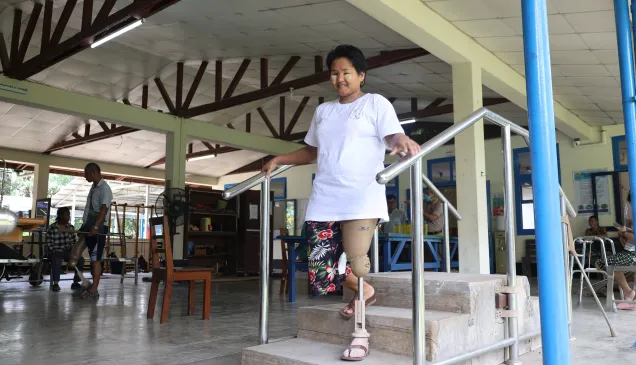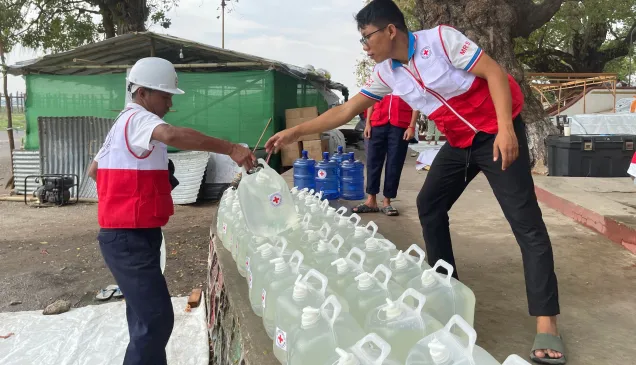Myanmar: A repairperson fixing her life and helping others
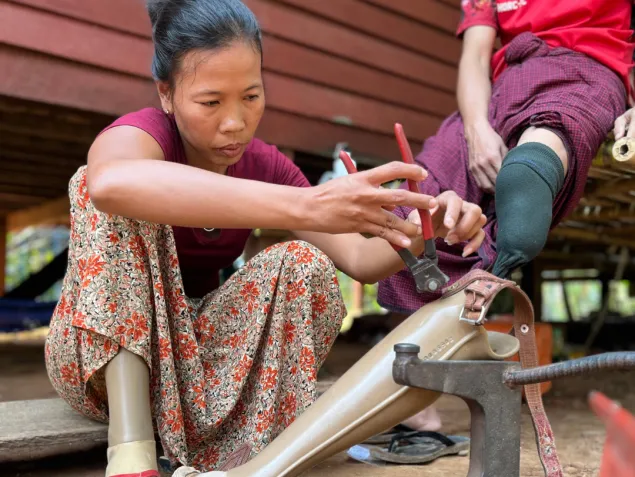
“It was just like other days – my friends and I went up the hills to collect bamboo. That’s when I stepped on a landmine,” she says.
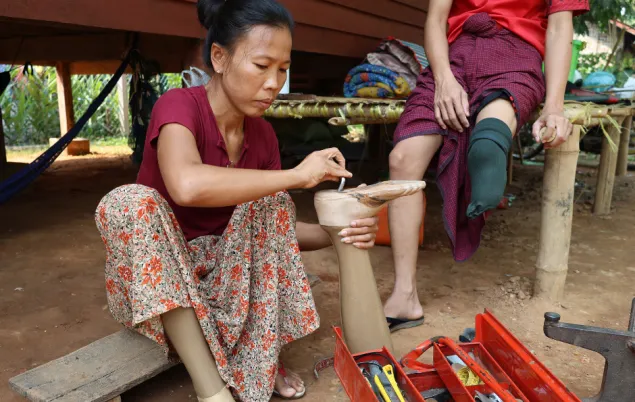
Through the support of Myanmar Red Cross Society, she also underwent physical rehabilitation at National Rehabilitation Hospital (NRH) in Yangon.
However, in 2003 the Hpa-an Orthopaedic Rehabilitation Centre (HORC) was set up and Ma San San Maw was referred to this centre, which was closer to her hometown.
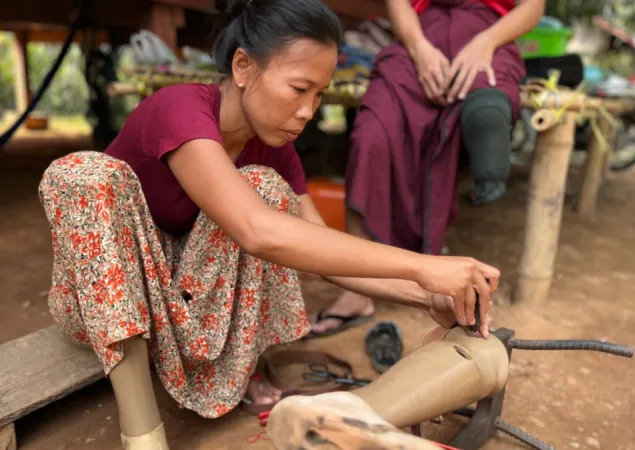
She recently received her ninth prothesis at HORC.
“I had never expected the sudden and cruel changes the incident caused, and I was depressed. But in Yangon, I met other people who had also suffered in different ways, and it helped me in my journey to recovery,” she says.
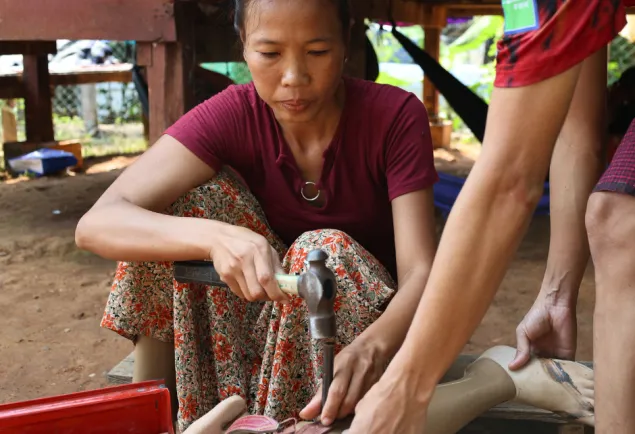
In 2016, Ma San San Maw started voluntary work with the Myanmar Disability Society.
In 2017, she participated in a two-week repairman training programme that was organized by the HORC and began providing services to those in need of small repairs for their protheses or orthoses.
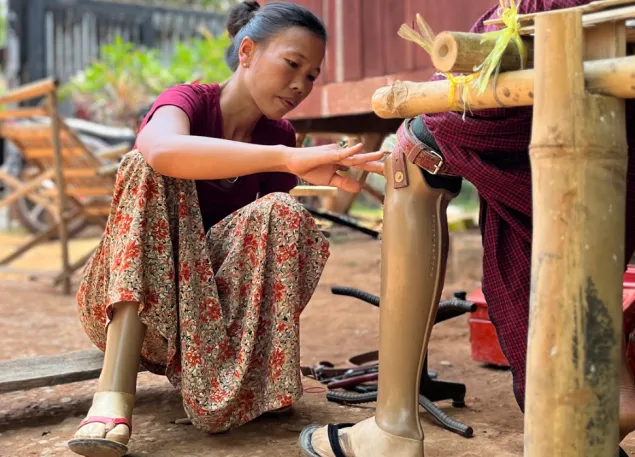
Ma San San Maw finds ways to encourage people with disabilities.
“Whenever I meet people like me, I tell them to think of what they can still do and pursue it, instead of thinking of what they can’t do. We might have lost a leg, but we still have other parts of our body that can be used to create handicraft items or do something else,” she says.
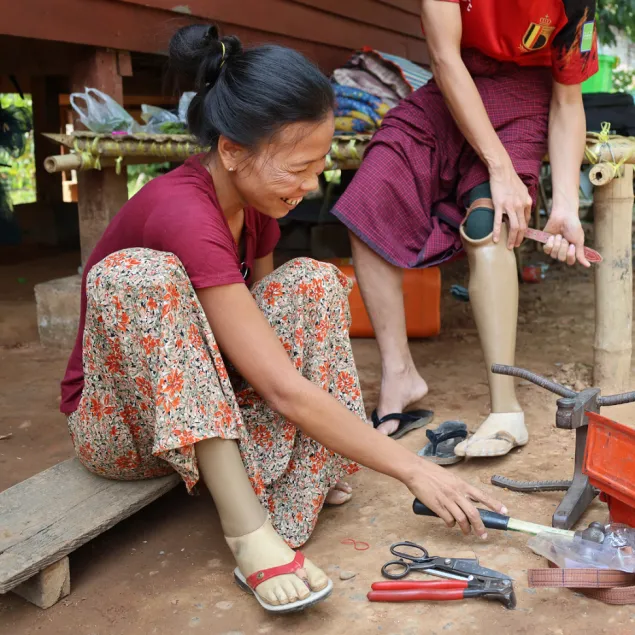
With armed conflict breaking out again in and around her hometown, Ma San San Maw says she is unable to go to villages like she used to.
However, it cannot keep her from helping people. Even though she had to flee her home for safety, she has been referring people with disabilities to the HORC for rehabilitation services.
Watching Ma San San Maw at work as a repairperson, tightening screws and fixing prostheses and orthoses for people with disabilities, can be quite interesting. But listening to her story – of surviving a landmine injury, battling depression and then becoming a repairperson who focuses on her abilities rather than her disability – is inspiring.


